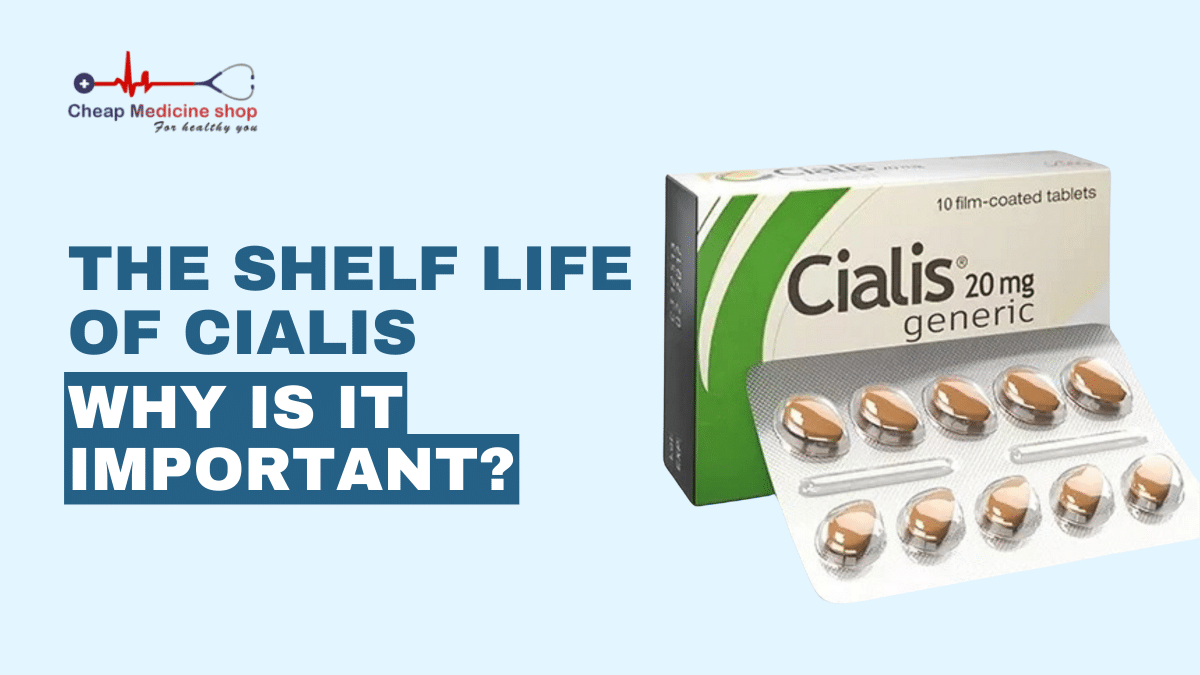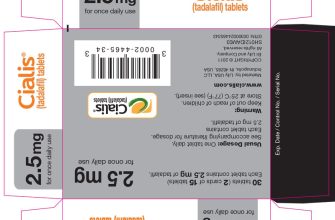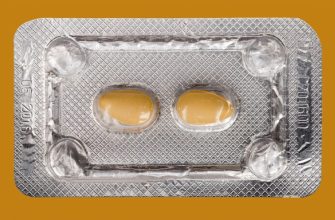Don’t take expired Cialis. Its effectiveness significantly decreases after the expiration date, potentially rendering it completely ineffective. This means you won’t get the desired results, and you’ll waste your money.
Expired medications can also contain degraded components. These byproducts may cause unexpected side effects, ranging from mild discomfort to serious health issues. Your safety is paramount; avoid unnecessary risks.
Proper disposal is key. Never flush expired medications down the toilet or throw them in the trash. Check with your local pharmacy or waste management authority for safe disposal options. They’ll provide clear guidelines on how to handle expired Cialis responsibly.
If you have concerns about your erectile dysfunction, consult a doctor. They can assess your health, recommend appropriate treatment, and offer valuable guidance. A doctor’s evaluation ensures you receive safe and effective care tailored to your specific needs. Getting the right diagnosis and treatment plan is crucial for long-term health and well-being.
- Expired Cialis: Risks and Considerations
- Reduced Effectiveness
- Unpredictable Effects
- Contamination Risk
- Potential for Increased Blood Pressure
- Alternative Options
- What Happens When Cialis Expires?
- Potential Risks of Using Expired Cialis
- Identifying Expired Cialis: Recognizing Signs of Degradation
- Visual Inspection: Color and Texture Changes
- Olfactory Assessment: Detecting Unusual Odors
- Storage Conditions Influence Degradation
- Beyond Visual and Olfactory Clues
- When in Doubt, Discard
- Potential Risks of Using Expired Cialis: Health Implications
- Safe Disposal of Expired Cialis: Protecting Yourself and the Environment
- Alternatives to Expired Cialis: Consulting a Doctor for Treatment Options
- Understanding Your Options
- Questions to Ask Your Doctor
- Finding Reliable Cialis: Ensuring Medication Authenticity
- Checking Your Cialis
- If You Suspect Counterfeit Cialis
Expired Cialis: Risks and Considerations
Do not use expired Cialis. Taking expired medication carries several risks.
Reduced Effectiveness
The active ingredient, tadalafil, degrades over time. This means the drug may not work as intended, rendering it ineffective for erectile dysfunction. You might experience no improvement in symptoms.
Unpredictable Effects
Degraded tadalafil can produce unexpected side effects. These might include intensified common side effects like headache, flushing, or indigestion. More serious side effects, while rare, become slightly more probable.
Contamination Risk
Expired medications are more susceptible to bacterial or fungal contamination. Ingesting contaminated Cialis can cause illness. Always dispose of expired medications properly following your local guidelines.
Potential for Increased Blood Pressure
While rare with properly stored Cialis, degradation might lead to unforeseen interactions with other medications you are taking, possibly causing a rise in blood pressure. Consult your doctor before taking any medication, especially expired drugs.
Alternative Options
If you need treatment for erectile dysfunction, speak with your doctor. They can provide safe and effective alternatives to expired Cialis.
What Happens When Cialis Expires?
Don’t use expired Cialis. The active ingredient, tadalafil, degrades over time. This means the medication becomes less effective at treating erectile dysfunction. You might experience weaker or shorter-lasting effects, or no effect at all.
Potential Risks of Using Expired Cialis
Taking expired Cialis may not only be ineffective but also potentially harmful. Degraded tadalafil can contain impurities, increasing the risk of side effects like headaches, back pain, muscle aches, flushing, nasal congestion, and upset stomach. In rare cases, more serious side effects are possible. Always consult your doctor before taking any medication, especially expired ones.
Discard expired Cialis properly. Check with your local pharmacy for disposal instructions; they often have safe and responsible take-back programs. Never flush medication down the toilet or throw it in the trash.
Identifying Expired Cialis: Recognizing Signs of Degradation
Inspect the pills carefully. Look for changes in appearance. Discoloration is a key indicator.
Visual Inspection: Color and Texture Changes
- Check for fading or unusual color shifts. Original Cialis tablets are typically a light yellow.
- Examine the tablet’s surface. Cracking, crumbling, or a change in texture signals degradation.
- Note any unusual spots or discoloration. These might indicate chemical breakdown.
Smell the pills gently. A change in odor from the original suggests degradation.
Olfactory Assessment: Detecting Unusual Odors
- A musty or chemical smell is abnormal. Compare to an unopened package if possible.
- A strong, unpleasant odor often indicates spoilage.
Consider the storage conditions. Improper storage significantly accelerates degradation.
Storage Conditions Influence Degradation
- Exposure to heat, moisture, or direct sunlight rapidly deteriorates the drug.
- Store Cialis in a cool, dry place, away from light and moisture.
- Always follow the manufacturer’s storage recommendations printed on the packaging.
Beyond Visual and Olfactory Clues
If you observe any of the above signs, discard the pills immediately. Using expired medication can be risky.
When in Doubt, Discard
- Never use expired medication. Consult your doctor or pharmacist if you have concerns.
- Obtain a new prescription from your healthcare provider.
Potential Risks of Using Expired Cialis: Health Implications
Avoid using expired Cialis. Its effectiveness decreases over time, meaning you may not achieve the desired effect.
More seriously, taking expired Cialis poses health risks. The active ingredient, tadalafil, can degrade, potentially leading to unforeseen side effects. These might include increased blood pressure, headaches, or digestive issues. In rare instances, more severe complications are possible.
The actual impact varies depending on the extent of degradation and individual factors. The longer the drug is past its expiration date, the greater the potential for adverse reactions.
| Risk Factor | Potential Consequence |
|---|---|
| Degraded Tadalafil | Reduced effectiveness, unexpected side effects |
| Contamination | Infections or allergic reactions |
| Unknown Degradation Products | Unpredictable health impacts |
Always dispose of expired medications properly, following local guidelines. Consult your doctor or pharmacist for advice on safe disposal methods.
If you experience any unusual symptoms after taking medication, even if it’s not expired, seek immediate medical attention.
Safe Disposal of Expired Cialis: Protecting Yourself and the Environment
Never flush expired Cialis down the toilet. This contaminates water supplies. Instead, follow these steps for safe disposal.
Mix the pills: Combine your expired Cialis with an undesirable substance, like used coffee grounds or kitty litter. This makes the medication less appealing to children or pets.
Seal tightly: Place the mixture in a sealed, non-descript container, such as an empty plastic bottle or bag. This prevents accidental ingestion and keeps the medication out of landfills.
Discard properly: Dispose of the sealed container in your household trash. Check your local pharmaceutical waste disposal program for additional options; some areas provide specific take-back programs for unused medications.
Protecting the environment is vital. Improper disposal of pharmaceuticals can have harmful consequences for wildlife and ecosystems. Following these simple steps ensures safe and responsible disposal.
For more information: Contact your local waste management authority or pharmacist for guidance specific to your region.
Alternatives to Expired Cialis: Consulting a Doctor for Treatment Options
Don’t use expired medication. See your doctor immediately to discuss alternative treatments for erectile dysfunction (ED).
Understanding Your Options
Your doctor can assess your overall health and determine the best course of action. This might involve:
- Lifestyle Changes: Addressing underlying health issues like obesity, diabetes, or high blood pressure can significantly improve ED symptoms. Your doctor can provide guidance on diet, exercise, and stress management.
- Alternative Medications: Several other medications effectively treat ED. These include tadalafil (Cialis’s active ingredient, but in a fresh prescription), vardenafil (Levitra), avanafil (Stendra), and sildenafil (Viagra). Your doctor will consider potential interactions with any other medications you’re taking.
- Hormone Therapy: Low testosterone levels can contribute to ED. Your doctor may order blood tests to check your hormone levels and prescribe testosterone replacement therapy if needed.
- Penile Implants: For men who haven’t found success with other treatments, a penile implant is a surgical option to restore erectile function.
- Vacuum Erection Devices (VEDs): VEDs are non-invasive devices that help achieve an erection. Your doctor can explain how to use them safely and effectively.
Questions to Ask Your Doctor
- What are the potential side effects of each treatment option?
- Which treatment is most suitable for my specific health condition and lifestyle?
- What are the long-term effects of each treatment?
- Are there any potential drug interactions with my current medications?
- What is the cost of each treatment option?
Remember, open communication with your doctor is key to finding the best solution for your needs. They can provide personalized recommendations and monitor your progress.
Finding Reliable Cialis: Ensuring Medication Authenticity
Purchase Cialis only from licensed pharmacies. Verify their legitimacy through state licensing boards or independent pharmacy verification websites. Look for a physical address and contact information readily available.
Checking Your Cialis
Inspect the packaging for inconsistencies. Authentic Cialis packaging will be crisp, clearly printed, and free from spelling errors or blurry images. Check for tamper-evident seals; any broken seal indicates potential tampering. The pills themselves should be uniformly shaped and colored; variations may signify a counterfeit product.
Compare the pill markings with images found on the manufacturer’s official website. Discrepancies in markings–including logos, numbers, and letters–should raise immediate concern. Never hesitate to contact the manufacturer directly with any doubts regarding the authenticity of your medication.
Avoid purchasing Cialis from unregulated online vendors or individuals. These sources often sell counterfeit medication, posing significant health risks. Always prioritize your safety and well-being by selecting reputable sources.
If You Suspect Counterfeit Cialis
Report suspicious medications to the appropriate authorities. Contact your local law enforcement or the FDA (Food and Drug Administration) to report potential counterfeit pharmaceuticals. Your report may help prevent others from falling victim to medication fraud.






